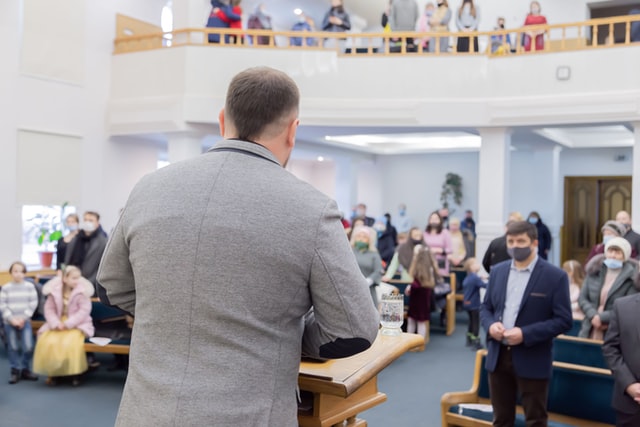What’s Good About Good Friday?
If you wonder what’s good about Good Friday, is Good Friday really good, or why do we call Good Friday good, you’re not alone. On the first “Good Friday,” the day Jesus was crucified, only His enemies viewed it as a good day. Keep reading to learn how the joy of Sunday’s empty tomb changed everything. What’s good about Good Friday? The Biggest Miracle Ever Seen Sin was the problem, but Jesus was the solution. God’s Son, fully God yet fully man, wrapped Himself in flesh, snuggled in a teenager’s womb, then made His arrival in the most unexpected way. Everyone expected a king, a conquering redeemer. Instead, Jesus was born in a stable, laid in a manger, and raised by a carpenter and his young wife in a tiny town in Israel. His public ministry lasted only three years and was marked by controversy and strife. He preached love and redemption at a time when the leaders wanted rules and the status quo. Jesus lived simply, without a home of his own, although His people expected the pomp and splendor of a mighty king. Those best prepared to welcome Him, the religious leaders, never recognized Him. When Jesus came back to life and stepped out of the empty tomb, it was the biggest miracle ever seen on this earth. It will only be topped when He steps off His throne and onto Mount Zion again. (Revelation 14:1) That day will be awesome and wonderful but it will also be terrible and devastating, just as the events of Holy Week were both marvelous and horrific. What’s good about Good Friday? There would be no Easter Sunday without the nightmare of Maundy Thursday, Good Friday, and Silent Saturday so we do well to remember the last week of Jesus’ pre-crucifixion life. (John’s account of Thursday/Friday of Holy Week) Why do we call Good Friday good? Unmet Expectations became reality. Fresh off the miracle of Lazarus’ resurrection, (John 11) Jesus rode through a palm-branch-waving, hosannah-shouting, crowd-lined street. He stepped off the never-ridden-colt in Jerusalem to celebration, acclaim, joy, and great anticipation. They wanted a Messiah who would free them from Roman oppression. Even the ones who opposed Jesus expected He would soon break the stronghold of the Romans, overthrow their government, and establish His own Kingdom. (John 11:47-53) Imagine for a moment how the disciples felt after three years of dusty roads, raw wheat eaten in the fields like beggars, rough sleeping conditions, and the scorn and ridicule of the religious leaders who held considerable power over society and everyday life. As the palm branches waved, visions of thrones, power, and riches probably danced in their heads. Not one of the disciples likely expected their dreams would crumble and die at their feet in less than a week’s time. They didn’t call the events of Friday good because, despite all Jesus’ warnings, they didn’t understand. Why do we call Good Friday good? Because we know what happened two days later. Is Good Friday Really Good? God’s purpose God is love. He is patient. Kind. Generous. Forgiving. He is good, but He is also righteous and just. His rightness demanded payment for the sin of the world but His goodness and His love knew we could never remit. (Romans 5:6-8) Jesus’ payment for our sin seems scandalous and outrageous. Would we sacrifice our beloved son for a world full of arrogant, selfish, rebellious people who treated us as if our rules for life were absurd? Certainly not. Would we ask our precious son to leave the glory, beauty, and perfection of heaven to suffer a horrific death in order to redeem people who would rather worship a piece of wood, a scrap of gold, or a temporary pleasure than our own goodness and holiness? Not in ten million years. We wouldn’t ask one of our sons to make such sacrifices for ourselves, let alone for a rebellious and horrifically sinful world. If the redeeming sacrifice was up to us, everyone would go to hell. The sacrifice God devised is not one we would make—not even with resurrection on the horizon. But God is not a man, nor does he deal with us as a man would. He is not willing for any to perish but wants everyone to come to repentance. (2 Peter 3:9) What’s Good about Good Friday? The Triune response to sin Our Triune God not only devised this outrageous plan for redemption, but He also wrapped Himself in the ill-fitting garb of flesh and accomplished it. He came in obscurity, lived in righteousness, sacrificed without limit, died alone and rejected, and rose again in triumph. (John 1:14, Philippians 2:7) The week we call holy was one of the most unholy of weeks. One of His closest friends betrayed Our Lord. Another denied Him three times. Soldiers arrested Him on trumped-up charges so absurd no one who knew Him could imagine a conviction, but the night of terror continued. Beaten so badly He was nearly unrecognizable, Jesus endured a night designed by and sent from hell. Literally. Before the nightmare ended, Jesus was convicted and sentenced to the most heinous of deaths—crucifixion. Nothing about the day we call Good Friday was good except the willingness of our flesh-wrapped Jesus, the perfect and holy Son of God, to take our place. He could have refused. Could have called for a rescue. He could have rained down fire from heaven and destroyed His enemies. It would’ve been entirely understandable if He did. But He didn’t. And that’s what’s good about Good Friday. Why Do We Call Good Friday Good? Jesus’ Willing Sacrifice Jesus left the glory of Isaiah 6 to suffer the indignities of Isaiah 53. He stayed the course. Made the sacrifice. Fought the battle. Won the war. It seemed as if all hope was gone until the scrape of stone on stone began. The silence of Saturday shattered as the stone rolled away from the mouth of the tomb. A
What’s Good About Good Friday? Read More »










